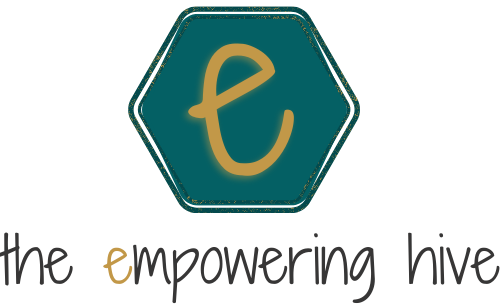When being responsible is making you sick
Your body can’t take it anymore: signs you’re living from duty instead of desire
We live in a time that celebrates productivity, efficiency, and commitment. “The more you do, the more you’re worth” seems to be the unspoken motto many women have absorbed since childhood. And while having a strong sense of duty may seem like a virtue —and often is— it can also become a trap. One that disconnects us from our bodies, our joy, and ultimately, our true nature.
Over the years, I’ve worked with many brilliant, sensitive, strong women… who are deeply exhausted. Women with incredible capacity to support others, fulfil responsibilities, solve problems, and organise. But also women who have lost touch with pleasure, who feel they can’t stop, that everything depends on them, and that if they’re not perfect, something will go wrong.
The trap of over-responsibility
“I’m very responsible” is something I hear all the time. And while it’s often said with pride, that responsibility is frequently tinged with extreme self-demand. It’s not the healthy kind of responsibility that helps us honour what we choose —it’s a rigid, heavy version that asks more of us than we can actually give.
Behind this over-responsibility are deeply rooted beliefs like: “If I don’t do it, it won’t get done,” “If I make a mistake, everything will fall apart,” or “I don’t have the luxury of resting.” These ideas, repeated and sustained for years, create an ongoing inner pressure that keeps us alert and tense.
And when that tension is sustained over time, it turns into physical and emotional symptoms that often get normalised… until the body says “enough.”
The body speaks when the mind won’t stop
Muscle pain, tension, teeth grinding, insomnia, chronic fatigue, anxiety. Many of the women I work with experience these symptoms without any clear medical cause. The body is “fine”… but it’s exhausted. Tense. Overstimulated.
In some cases, autoimmune diseases appear. From a biodecoding perspective, autoimmune illnesses often point to a deep inner conflict: the body no longer recognises itself as “self.” It’s as if there’s a split between who we really are and who we believe we should be.
So often, when we live under imposed mandates —“you must,” “you should,” “you have to be strong”— we stop inhabiting our essence and begin performing a role. A role that delivers, holds, solves… but forgets itself in the process.
Emotional weight becomes physical weight
Another common symptom I see is weight gain, especially in women who are constantly in alert mode. Beyond diet or exercise, the body responds to stress. And in many cases, fat becomes a form of protection: if the body feels in danger, like it has to hold too much, or is afraid of running out of resources, it starts to store.
Biologically, this makes perfect sense. If the brain perceives a threat —even a symbolic one, like not being enough— it activates defence mechanisms. One is fat storage. Another is releasing cortisol, the stress hormone that disrupts sleep, digestion, mood, and metabolism.
This creates a vicious cycle: more stress, more symptoms, more pressure, less enjoyment —and often, more guilt for not being able to “handle it all.”
Too much “doing,” not enough “being”
In this context, many women become disconnected from their feminine energy. Feminine energy isn’t about gender, but about a way of being in the world that is more receptive, intuitive, creative, and fluid. It’s the energy of rest, pleasure, and presence.
When this energy is blocked or repressed, masculine energy takes over: control, structure, action, logic, and holding it all together. Both energies are necessary and complementary, but when one dominates without balance, it creates an internal split.
In practice, this looks like women who are doing a lot, but enjoying very little. Who are so focused on external demands and urgency that they forget to look inward. Who believe they have to “earn” rest, pleasure, or tenderness.
And life begins to feel like a burden, rather than a creative experience.
Returning to your nature: from duty to desire
The answer isn’t doing more, but doing differently. It means changing “I have to” to “I choose to.” It means questioning inner mandates and asking: Am I doing this because I want to or because I feel I must? Is this truly mine or something I inherited? Is it really true that I’m not valuable unless I’m perfect?
Rebalancing means coming back to the body, to pleasure, to slowness. It means allowing yourself to do less but feel more. It also means asking for help, letting go of control, and speaking to yourself with the same compassion you offer others.
This path isn’t always easy, because it often involves unlearning long-standing patterns. But it’s deeply liberating.
Small steps for big transformation
Healing the root of over-responsibility and reconnecting with your feminine energy doesn’t require huge shifts. Sometimes, the most transformative things are the simplest:
Listening to your body before making a decision
Saying one kind word to yourself in the mirror
Doing something enjoyable without justifying it
Letting others support you
Resting without guilt
And above all, allowing yourself to be imperfect. You weren’t born to meet expectations —you were born to be yourself.
A gentle ally: Bach Flowers
One accessible, gentle and deeply effective way to begin this shift is with Bach Flower Remedies. These flower essences work on the emotional patterns behind over-responsibility, rigidity and disconnection, helping to restore your inner balance.
Here are some of the remedies I often use in these cases:
Oak: for those who keep going even when they’re completely worn out
Elm: for those overwhelmed by responsibilities, even though they’re usually capable
Rock Water: for those who are extremely hard on themselves and don’t allow flexibility
Impatiens: for those who rush through life and struggle to slow down and enjoy
Olive: for deep physical and mental exhaustion
Larch: for those who doubt themselves and overcompensate by doing more
Please note: this is only a general list. Everyone experiences stress and self-demand differently. That’s why I always recommend a brief consultation before preparing your formula —so we can identify exactly what’s right for your current situation.
I sell the remedies directly within Australia and can ship your personalised blend to your door. If you’re abroad, I’ll give you a custom list so you can get the remedies locally.
If this feels like the right place to start, you can book an Online Bach Flower Consultancy here:
If you'd like to go deeper at your own pace…
Another resource I highly recommend is the course “Awakening Your Feminine Chakras” from DailyOM.
This program is designed to help you reconnect with your feminine energy through practical and powerful teachings, inspired by both ancient and modern wisdom.
It’s perfect if you feel like you’re stuck in “doing mode,” craving more softness, receptivity, and joy.
Best of all, you can choose what you pay (USD 25, 50 or 75) and get lifetime access.
This is an affiliate link, which means I may receive a small commission if you enrol, at no extra cost to you. I only recommend resources I truly value and align with my work.
Journal prompts for reflection
What have I been demanding of myself lately that I could release?
Which part of me needs care, rest, or attention right now?
What could bring me joy today, without guilt?
What would I do differently if I no longer felt that everything depends on me?
What would a lighter, more authentic life look like for me?
Coming home to yourself doesn’t require more effort —it requires more love. And love begins when you stop pushing yourself so hard… and start truly listening.
I’m here if you feel ready to walk that path with support.
Milly



